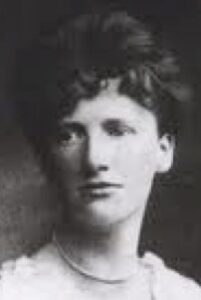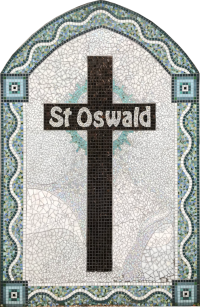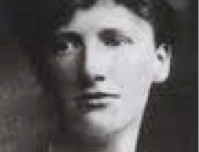Ever wonder how the ‘Save the Children’ charity first began?

Photo: Jeff Fountain, Wikimedia
It was born out of the horrors of warfare 100 years ago, when a retired Christian schoolteacher decided to help the suffering refugees in Europe.
Eglantine Jebb’s courage, compassion and determination gained her national recognition. Her work has saved literally millions of lives, and so the Church considers her a modern-day saint, and honours her this weekend, on 17th December.
Eglantyne did not begin as an obvious ‘mover and shaker’ of people. Born in Shropshire in 1876, she grew up in Ellesmere, studied history at Lady Margaret Hall in Oxford, taught at Marlborough, and then resigned, as she was not physically robust.
Eglantyne moved to live with her mother in Cambridge, and it would have been so easy to settle for a life of peaceful obscurity. But she was a Christian, and at Oxford she had developed a passion for social concerns, so this compassion now drove her to take action.
She began in 1906 by publishing research on the poverty she’d found in Cambridge.
Then in 1912 the Balkan Wars broke out, and Eglantyne left Cambridge for Macedonia. Her months among the refugees led her to decide that long-term constructive aid was more effective than short-term handouts.
The First World War left Eglantyne horrified by the prolonged Allied blockade on Germany and Austria-Hungary, which even after Armistice meant starvation for millions of civilians, especially children.
And so in1919 Eglantyne and her sister Dorothy Buxton helped found the ‘Fight the Famine’ Council, which wanted to end the blockade and establish a League of Nations.
One day during a rally in Trafalgar Square, Eglantyne was arrested for distributing a leaflet showing starving children which read: “Our blockade has caused this – millions of children are starving to death.”
She ended up in court and was fined, but the judge was so impressed with Eglantyne’s commitment to children that he himself paid her fine. His money became the first donation to Save the Children, the new charity just set up by Eglantyne and Dorothy.
Save the Children was officially launched at the Albert Hall in May 1919, with the aim of helping the starving civilians of central Europe. It was a success, raising £400,000 in that first year alone.
When in the autumn of 1921 Russia was facing famine, Save the Children chartered a cargo ship, the SS Torcello, to carry 600 tons of lifesaving food and medical supplies to Russia – saving hundreds of thousands of lives.
By 1922 Save the Children had become one of Britain’s biggest charities. Eglantyne’s Declaration of the Rights of the Child, written in 1923, was adopted by the League of Nations the following year. The present-day UN Convention on the Rights of the Child is derived from it.
But ten years of running Save the Children had sapped Eglantyne’s fragile strength, and she died in Geneva in 1928, aged only 52.

